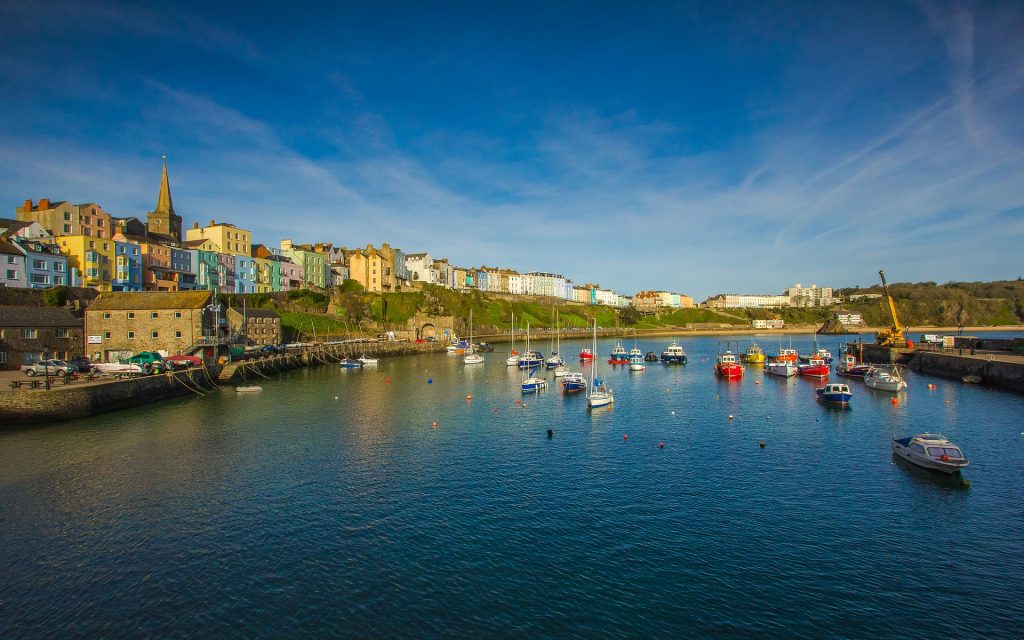 Poverty
Poverty 
Housing Policy Officer Hugh Kocan takes a look at how the rise in popularity of ‘staycations’ may affect the lives of tenants.
One of the consequences of the Covid-19 pandemic is the increase in popularity of ‘staycations.’ With the restrictions placed on international travel, many families are ditching foreign holidays in favour of taking a break closer to home.
Wales is a hugely popular area for these types of holidays. Between 2017-2019, Wales saw a colossal 3.7 million domestic tourists. One blog from the BBC put north Wales as the number one staycation destination in the UK, with south Wales taking the eighth place spot.
All these visitors bring with them a number of benefits for communities, boosting local economies and helping promote Welsh culture. However, this popularity creates a demand for accommodation, which undoubtedly has a wider impact on the local housing market. While local hotels and campsites absorb some of the demand, there is additional demand for more high-end accommodation. Typically, conversations about this demand tend to centre around its impact on the owner-occupied sector. Debate tends to focus on how the high number of second homes prevent locals from being able to purchase a home in their own community. Yet, an overlooked element of this conversation is the impact this has on the private rental sector.
Unprecedented Demand
As part of our project investigating the impact of the Local Housing Allowance, we have interviewed local authority housing teams in Gwynedd, Pembrokeshire, and Conwy – three councils which are common tourist destinations. One of the issues that they are facing is that many landlords are taking advantage of this increased demand for staycation holidays and converting their accommodation into Airbnbs and similar short-term lets.
While it is too early to see the impact of this unprecedented period of demand, there are some indicators which suggest that the impact may be significant.
Research from the Guardian prior to the pandemic reveals that there are multiple areas within Wales where Airbnb properties already made up 10% of properties. Furthermore, a pre-pandemic UK-wide report from Capital Economics surveyed both short-term and long-term landlords. Their data suggested that 10% of landlords were considering converting their long-term rentals into short-term holiday accommodation. This could lead to roughly 8.7% of homes being removed from the market, approximately 18,000 homes in Wales.
Both figures from the Guardian and Capital Economics are representative of trends before the current unprecedented levels of demand for staycations. If more landlords take advantage of the demand, local communities could soon see thousands of local homes being used purely for tourism.
A Lack of Available Housing
This could further increase the already large amount of pressure faced by those claiming the local housing allowance (LHA). The LHA determines how much financial support someone living in the private rental sector is entitled to through the social security system. The LHA should entitle a household to enough support to cover the rent of the cheapest 30% of homes in a market area. However, our research is currently indicating that in reality the support on offer only covers the rent of the cheapest 5% of homes nationwide.
If demand increases due to the stock being turned into short term lettings, then we will likely see the percentage of available and affordable housing decrease even further. In addition, there would likely be an increase in evictions to allow landlords to convert their homes into holiday accommodation. This would further increase the pressure faced by families and councils.
This would greatly intensify the pressures of second home crisis, as people will not only be unable to afford to buy a home, but they will also be unable to rent in their communities. Subsequently worsening the issues of brain drain, and the exodus of Welsh speakers that is already plaguing many rural communities.
When we talk of the pressure faced by rural communities, we cannot forget that it is not limited to second-homes, but also includes the large amount of private rental homes being converted for holiday rentals. Any legislative changes that seek to tackle the amount of second homes, needs to ensure the demand is not just shifted towards rental properties.
Hugh Kocan is a Policy Officer at the Bevan Foundation


